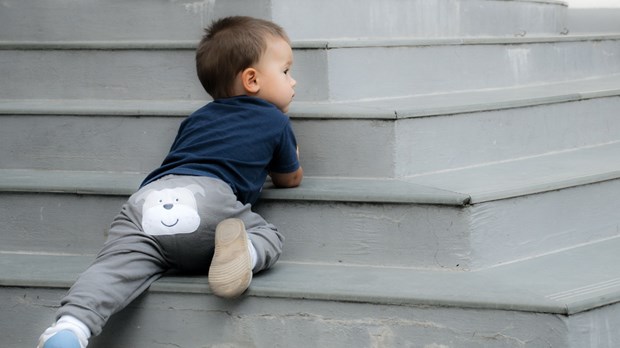When "No" Isn't Enough

Q. Now that our baby is 2, we're seeing that he needs more effective discipline than just us saying "no no" to him. What's the best way for us to curb his behavior?
A. The fact that you are willing to adapt your discipline to meet your child's changing needs tells me you're doing better than you might think. As you work through how you will discipline your child, here are a few principles to keep in mind:
Know your purpose.
Effective discipline needs to focus on the character you are forming in your children as well as on teaching them right from wrong. This is especially true for preschoolers who are new to the very idea of making choices and managing their behavior. Think about the kind of character you want your child to develop and concentrate your discipline efforts on the behaviors that shape that kind of character. For example, you want your child to be kind to others, so discourage behavior that is harmful (like hitting) or unkind (like taking toys from other kids without asking).
Check your expectations.
Toddlers typically act out because of an unmet need, not out of malice. If your child is hungry or tired or bored, he's more likely to misbehave, so try to be patient and determine what he needs. Young children are also excited about discovering the world, so it's natural for their curiosity to take over and their attention to wander. Remember that he doesn't know that cat food needs to stay in the bowl or that trucks can't go in the toilet. When the temptation to react in frustration arises, step back, breathe, think, and pray.
Stay positive.
Instead of saying "no no," try telling your son what you want him to do—or not do. Say, "Stop touching the door," or "Leave the plant on the table." These commands are easier for a child to follow than a vague "no." Keep your instructions clear, specific, and kind, and respond with lots of praise when your child does what you ask.
Remember that discipline rooted in threats, intimidation, or manipulation causes confusion and strife in a young child. Also, avoid labeling your child ("You're a naughty boy") or forecasting negative behavior ("You always make a mess"). Children respond best to adults who are positive and encouraging, so guide your son with firm, but gentle, discipline.
Give yourself a break.
Look at yourself through your child's eyes. What does he like about you? What are your personal strengths, weaknesses, and spiritual gifts? How can you make the most of these as you parent? Can your son see Christ reflected in the way you treat him? Don't worry about comparing yourself with other parents or your son with other 2-year-olds. Use the gifts God has given you to do your best for your unique child.
Monitor your progress.
Use the FIT list to test your new approach:
Frequency: Do you notice your child intentionally choosing appropriate behavior more often? Show him how excited you are when you see these small improvements!
Intensity: Are tantrums becoming less emotional for your son? That's a good sign. Encourage him as he learns to calm himself.
Threshold: Does your son show more tolerance when things don't go his way? Is his fuse a little longer? Compare today with a month ago or six months ago. Any improvement is a step in the right direction.
The toddler years are a wonderful time to watch your child grow and learn. Be patient and enjoy the ride!
Mary Maslen is the Early Childhood Specialist for Awana International. She makes her home in Illinois.
Copyright © 2003 by the author or Christianity Today/Christian Parenting Today magazine.
Click here for reprint information on Christian Parenting Today.
Read more articles that highlight writing by Christian women at ChristianityToday.com/Women
 Read These Next
Read These Next
 Grace Rules!How we brought God into our discipline style
Grace Rules!How we brought God into our discipline style
 Should I Skip Church for Kids’ Sports?5 principles for making the tough call
Should I Skip Church for Kids’ Sports?5 principles for making the tough call









 Homepage
Homepage